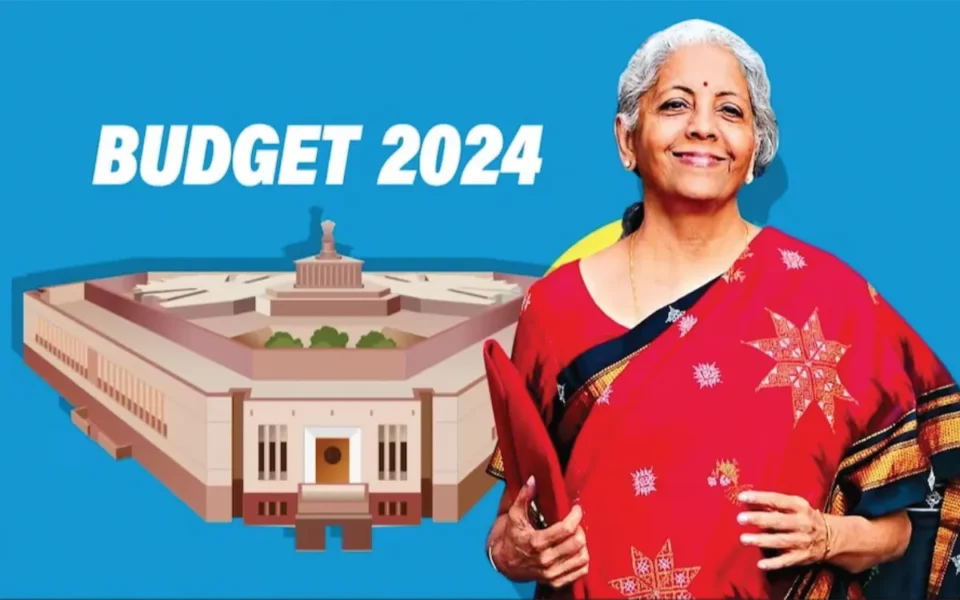The Garment Industry has expressed strong support for the Union Budget 2024-25 presented by Union Finance Minister Nirmala Sitharaman.
Union Finance Minister Nirmala Sitharaman has given a significant boost to the textile sector in the Budget 2024, increasing the allocation by 28% to Rs.4,417.03 crore for the fiscal year 2024-25.
The budget includes substantial additions for cotton procurement, the National Technical Textile Mission, the Integrated Scheme for Skill Development, and several other initiatives. However, the allocation for the Amended Technology Upgradation Fund Scheme (ATUFS) has been reduced to Rs635 crore, down from last year’s ₹675 crore.
The Technology Upgradation Fund Scheme (TUFS), aimed at creating a modern and vibrant textile industry, was first introduced in 1999. The Amended Technology Upgradation Fund Scheme (ATUFS) followed in January 2016. This credit-linked scheme is implemented through notified lending agencies to reimburse subsidy claims on eligible investments.
Over the years, the scheme has evolved under various names, including the Modified Technology Upgradation Fund Scheme (MTUFS), the Restructured Technology Upgradation Fund Scheme (RTUFS), and the Revised Restructured Technology Upgradation Fund Scheme (RRTUFS).
The scheme aims to promote ease of doing business, generate employment, and boost exports through the Make in India initiative with a focus on “zero effect and zero defect” in manufacturing. It also seeks to enhance investment, productivity, and employment in the textile industry while indirectly encouraging investment in textile machinery manufacturing. Furthermore, it aims to improve quality in the processing industry and reduce the need for fabric imports.
In March of the previous year, the then minister informed Parliament that the allocation for the textile sector in Budget 2023 was ₹4,389.34 crore, significantly higher than the revised estimates for FY 2022, which stood at ₹3,579.61 crore.
Key highlights of the budget that will benefit the garment industry include:
- Expansion of Trims and Embellishments under IGCR: This move is expected to significantly boost exports in the RMG sector.
- Enhanced Credit Guarantee Scheme for MSMEs in Manufacturing: This will provide crucial support to small and medium enterprises in the manufacturing sector.
- Wage Support for New Entrants: A grant of one month’s wage for new entrants in all formal sectors up to Rs 15,000.
- EPFO Contributions for New Manufacturing Employees: The budget provides for EPFO contributions for new manufacturing employees for four years.
- Incentives for Women’s Facilities: Incentives for setting up women’s hostels, dormitories, and crèches.
- Upgrading Industrial Training Institutes: This initiative aims to prepare the industry for future challenges.
- Support for Cotton Corporation of India: Enhanced support to stabilize cotton prices.
Budget Reactions

“This budget underlines the progressive vision of the government for holistic growth and steps to reach Vikshit Bharat. The garment industry hails the acceptance of the AEPC’s demand by expanding the list of trims and embellishments under IGCR, which will help the Ready-Made Garments (RMG) industry thrust exports.”
Sudhir Sekri, Chairman, AEPC

This budget is extremely pragmatic and innovative in some of the bold decisions and directions it has taken to encourage employment directly. The steps include an internship scheme, the decision to reimburse one month’s wages for new employees, and subsidies for employees earning over a lakh of rupees. These are excellent steps being taken. However, there are many open-ended areas at this point, and we await the details before making specific suggestions.
Rahul Mehta, Chief Mentor, Clothing Manufacturers Association of India (CMAI)

The government has tried to strike a balance between populist and policy measures. RAI appreciates the government’s focus on empowering the middle class and rural population. Initiatives such as monetary support for farmers, higher exemption limits in personal income tax, and increased standard deductions will provide higher disposable income, leading to increased spending. We believe this will stimulate consumption growth, thereby boosting the overall economy. The reduction of duty on gold, precious metals, and mobile phones will also provide a significant boost to these sectors, particularly during the festive season.
Kumar Rajagopalan, CEO, Retailers Association of India (RAI)

The focus on manufacturing and MSMEs is set to drive major growth. New schemes, increased Mudra loan limits, and better credit support mean big opportunities for innovation and expansion. It’s a great time to be in the manufacturing sector.
Ankit Jaipuria, Founder, Zyod.
The budget includes substantial additions for cotton procurement, the National Technical Textile Mission, the Integrated Scheme for Skill Development, and several other initiatives. However, the allocation for the Amended Technology Upgradation Fund Scheme (ATUFS) has been reduced to Rs635 crore, down from last year’s ₹675 crore.

